Toronto Fringe’s New Young Reviewers 2023 | Round Two
The second round of reviews from the 2023 Toronto Fringe New Young Reviewers is here!
Led by Signy Lynch (Contemporary Theatre Review, Canadian Theatre Review, Intermission Magazine) and Stephanie Fung (Kingston Theatre Alliance, Canadian Theatre Review, Single Thread Theatre), the New Young Reviewers Program is a workshop series and writing group for emerging theatre and performance reviewers across Canada. Open to participants ages 15 and up, this program introduces participants to the basics of theatre reviewing, helping them develop responses to Toronto Fringe and Next Stage performances. With support from the Jon Kaplan Legacy Fund, the program encourages participants to explore emerging creative approaches to criticism and to begin to define themselves as critics and reviewers.
Look below to read the second round of reviews from the 2023 New Young Reviewers! The shows included in this batch are Maggie Chun’s First Love and Last Wedding, One Night Only, Mail Ordered, Morning After, La Voix Humaine, Our Little Secret, A Jew in a Gentile World, The Man With a Golden Heart, Bunny!, Absolute Magic with Keith Brown, and Corporate Finch.
For more information on this year’s New Young Reviewers, check out their photos and bios on the Fringe site here.
For more Fringe coverage, you can check out Intermission’s Twitter reviews here.
“Maggie Chun’s First Fringe”
By Melissa Avalos
Sometimes fate knocks on our door, and other times it crashes our engagement party at the Hotel of God.
It’s the morning of Maggie Chun’s (Jobina Sitoh) wedding day and everything seems perfectly typical in her small-town Ontario life. Her engagement to long-time boyfriend Rob (Isaac Kuk) is everything a girl from Windser (yes, with an E) could ask for, until a run-in with her middle school crush (Julia Rapai) reminds her that there might be more to life than what others expect of us.
Maggie Chun’s First Love and Last Wedding is a whimsical yet emotional production that showcases quick, snappy writing with the well-deserved title of winner of the Toronto Fringe New Play Contest. From a photo-booth confessional to a sculpted butter statue of a cherub, the script’s personality shines through with fun and unique set pieces that integrate seamlessly into the colourful and quirky world that writer Helen Ho has drummed up for us. Through Maggie, we explore the ways we might complicate or simplify love to meet a socially convenient framework. Maggie wants to stay in Windser forever — or is that just what her parents want for her? Together, we confront the conventions that keep us from reaching our potential.
While the writing is endlessly creative, some jokes fall flat due to clumsy delivery, and despite a talented cast of eight, the use of space (or lack thereof) leaves the Factory Mainstage feeling under-utilized. At times, Julia Edda Pape’s direction and pacing feels stunted, and the repetition of staged simplicity creates a sense of monotony. Still, the heart of the production keeps audiences engaged as we root for Maggie and the people of Windser. In their own way, everyone undergoes a journey of self-discovery where they yearn to be noticed, cared for, and wanted — all while fearing change, rejection, and the feeling you might throw up. No one wants to risk their comfortable life for an intangible dream. And like Rob’s best friend Paul (Ethan Magnus), don’t we all wish we had a magic cowboy hat that could tell us what to do?
Ultimately, Maggie Chun is an authentic story about a troubled girl in love that can be enjoyed by anyone, regardless if you’re from a small town or a big city. The sincerity of this production will pull at your heartstrings (even if that might sound a little corny to Maggie herself.
“One Night Only Barrels Through the Wee Hours at Top Speed”
By Haley Sarfeld
It’s a simple task: make it to 9 a.m. without killing yourself. Nicholas Eddie’s One Night Only (duhdumduhdum productions) plumbs the sweaty depths of nonsense that a fickle mind and noodly body can reach in pursuit of… life? Death? Entertainment? Meaning? It’s hard to say, but he’s certainly pursuing something over the course of the hour.
In a dreamlike assortment of seamless sketches, Eddie takes a 55-minute, one-man ride through a loopy tunnel of existential perils. Though the terrain he covers is sometimes tired — there’s a well-trodden nihilism underpinning the social commentary, with flavours of everything edgy from Breakfast of Champions to Bojack Horseman — Eddie’s performance has the eerie freshness of a newly sodded lawn. Of just-brushed teeth revealed in a too-wide grin, a little toothpaste around the lips. Vibrant and disgusting.
Too abstract? Let me put it another way: if Timothée Chalamet, possessed by the ghost of Harpo Marx, were called upon to play the role of Mr. Bean while in disguise as Frank Zappa, he’d be a dead ringer for Eddie in the opening scene. If I’m running too quickly between ideas here, watch out — One Night Only flies at warp speed in the face of narrative logic. The show’s pace shouldn’t be sustainable, but somehow it is. Just as the relentless tempo begins to feel exhausting, Eddie shifts gears, and his character has a quiet — even vulnerable — moment with the audience.
While his wiry frame is the only physical presence to grace the stage, Eddie is far from alone in bringing this play to life. Director Sepehr Reybod and stage manager Adrian Chevalier make deft work of the show’s all-over-the-place storytelling and rapid sound and lighting changes. On our protagonist’s journey through the night, he interacts with numerous pre-recorded voices (also Eddie, with additional voiceover work by Emma Nelles). I was impressed by how alive these characters seemed — a testament to the tech team’s attentive execution of audio cues.
If you’ve ever loved someone experiencing depression, mania, or something of that ilk — or if you’ve ever been that someone — this play might tug at something inside you. It tugged at something inside me, and I’m pretty sure it wasn’t just the bubble tea I drank too fast on my way to the theatre. I’m thankful that One Night Only isn’t true to its name — I hope to catch this condensed all-nighter again before Toronto Fringe wraps up. If not, I’ll find it at Theatre Kingston’s Fringe in August. But first, I’ll make it through to tomorrow morning.
“Review/In Conversation with Shanice Stanislaus of the Fringe’s Mail Ordered”
By Zoe Marin
Mail Ordered is a hilarious, heartfelt feat in Singaporean-Canadian collaboration. Through the story of a young woman’s liberation, creator and lead performer Shanice Stanislaus successfully satirizes not only her own conservative upbringing, but also societal norms regarding marriage, the performance of “femininity,” and class/gender power dynamics which will resonate with a Canadian audience.
Going into Mail Ordered, I knew I was getting clown, chaos, and all-around silliness.
Having previously seen an excerpt at a #FringeIsFunny showcase, I understood its basic premise: a young woman named Lila seeks a Canadian husband in the audience to buy her for $100,000. She tries to impress the audience through dancing, cleaning, telling jokes, and informing you of her height, weight, and astrological sign, while the men she invites to “buy” her also have to impress her — she will inquire about their financial status and blood type. I knew this would be a fun show, but I was surprised at how impactful it is.
Wanting to learn more, I sat down with Stanislaus to discuss Mail Ordered.
On the origins of the show, she noted, “I was working in Cambodia with a group of girls and children teaching dance to them for 10 years. I always came across stories like Lila about being sold. And I never really thought about it when I was doing the work there, but I knew of these stories and I knew of these girls, and I knew of those dreams that they had.”
It wasn’t until her residency with the Centre for Artistic Development in Calgary that she discovered the character of Lila. In a panic after not bringing in a costume for an activity, Stanislaus grabbed a wedding dress from the theatre’s wardrobe, and “came out as Lila” for the first time.
“And it felt like, in that moment”, she revealed “the 10 years of that experience, of seeing all these stories, just came out in this character.”
Through this character, Stanislaus began to explore her experience as a woman in a conservative household, as well her experience as a Singaporean traveling to Canada for the first time.
Stanislaus mentioned her love of “cultural collaboration,” which I saw clearly in this piece. Mail Ordered draws from many specific references such as Asian melodramas, Singaporean rituals, Aqua’s “Barbie Girl,” Gaulier clown, and, obviously, the mail-order bride industry — many of which which initially went over my head.
Despite my personal lack of knowledge, I was still completely invested in Lila’s story, as was the entire audience. At the performance I attended, they continuously cheered for Lila’s successes and groaned when other characters (or audience members) mistreated her.
Stanislaus told me that at another performance, “someone asked if they could have a discount on my price, and I asked this lady ‘do you think I should have a discount on my price?’. And I think that question made a lot of women feel very riled up. So by the time [the ex-boyfriend] came into the room, they were on [Lila’s] side”.
Even Stanislaus is astonished by audiences being “so invested in protecting Lila.” However, it is clear that the specificity of this story brings out themes that will resonate with and even “rile up” any audience.
“Morning After is Not Just for Watching”
By Eleanor Yuneun Park
Content warning: this review contains mentions of sexual assault.
Unfortunately, when sexual assault is used as a subject matter in art, audiences may find themselves unintentionally trivializing and jumping to conclusions on why and how the crime is recounted.
After almost two decades of the #MeToo movement and subsequent publicization of the discourse, the audience starts to dare to assume that a new rendition of depicting sexual abuse can look different from what has thusfar been portrayed onstage or on the screen. Katarina Fiallos’s Morning After at Aki Studio partially confirms and denies that assumption.
In some ways, Fiallos’s show is conventional. It treads on the traditional mill of traumatized sexual assault victims repeatedly falling down and getting back up until some form of peace is made. However, what makes this eight-women show distinct is the space it allows for the audience to be let down by their struggles to heal.
Morning After doesn’t fall into a trope of purity and innocence, but allows for sympathetic, flawed characteristics — in both men and women. From one of the sex offenders to the comically underqualified and incompetent recovery group leader, every character is portrayed entirely through the voices and bodies of the women who knew them.
When embodying their assailants, the irresponsibly douchey behaviour of the men involved is enhanced in stark contrast with their feminine actor bodies. It’s a haunting reflection of on of how one performer describes the contrast in how men and women are socialized (“women were taught to whisper so all they could do is watch.”) While men are raised to fail loudly, women are raised to take responsibility for the havoc that men’s irresponsibility causes.
This is what creates moments where women are sometimes let down by other women. Even as a daughter blames her mother for never discussing sexual assault with her, both the daughter and the audience know it’s not her fault. But after all, that’s what women have historically been taught to do — watch.
But this ensemble reminds us that things have changed. Between heart-wrenching scenes of recovery, the performers harmonize a repetitive melody while caressing each other and themselves in supple movements, as if to breathe life into one another. The stage, dressed in pale, white drapes, and the women all congruously in blush pink, create peacefully sublime scenes at the apex of feminine beauty and camaraderie. In each other’s arms, they aren’t merely watching anymore.
Morning After is a recommended watch. The dialogue and soliloquies have room for improvement, as they seemed at times one-dimensional, but the subject’s permanence is beautifully ingrained in Fiallos’s show. At a time when the world may dare to demand a different approach to expressing how women heal from sexual assault, Fiallos holds a mirror at the world and questions why all they can do is watch.
“La Voix Humaine: 1930s Opera Still Sings True in Modern Setting”
By Aidan Hammond
La Voix Humaine: cette frappe les bonnes notes, mais je me sens j’étais raté quelque chose.
This is a good show for those who want to experience their first opera while putting all those hours on Duolingo to practice.
La Voix Humaine, produced for the Toronto Fringe by Opéra Homardé, is a French-language, one-act opera written by Francis Poulenc in 1930. This timeless opera revolves around the character Elle (Dominie Boutin) as she speaks with her ex-lover over a frequently disconnected phone call. La Voix Humane explores how the toll of heartbreak and isolation, both physically and emotionally, affect a person’s mental health. And the emotional stakes are operatic gold.
Recovering in a hospital, the room is decorated with a full bed, nightstand, IV pole, and shower curtain divider filling the majority of the stage. But with the Tarragon Solo Room being the size that it is, perhaps less might have meant more.
For a large portion of the 45 minute show, I found myself constantly distracted by the projector used for surtitling. While useful for those who aren’t fluent in French, on July 8th, the machine is placed in a spot that obstructs the seating and is consistently obscured by the stage action.
Thankfully, Poulenc’s score carries the plot just as much as the lyrics. Boutin’s voice is clear and elegant, carrying a wide range of emotions, from the soft love of nostalgia to the painful realizations of desertion. Pianist Christina Faye is a perfect partner in sound, filling the space with the melodic tension and release of Elle’s mental crisis.
Overall, I’m glad La Voix Humane has found a spot in the Fringe so that audiences can take the risk of adding a little opera into their viewing array.
“Our Little Secret: The Toronto Fringe’s Worst-Kept Secret Dazzles Audiences”
By Melissa Avalos
The Toronto Fringe has been home to humble beginnings for many hit musicals like the Drowsy Chaperone in 1999 and My Mother’s Lesbian Jewish Wiccan Wedding in 2009. Joining that list is Our Little Secret: the 23&Me Musical in 2023.
Our Little Secret is an action-packed, one-man musical that tackles complex topics like family, manhood, and identity while telling the true story of how an only child discovered his parents’ biggest secret — that he and his father are not genetically related. Over the course of an hour, writer and performer Noam Tomaschoff takes the audience on the same emotional rollercoaster that he experienced when he discovered that his family is a lot bigger than he thought.
From the moment the spotlight illuminates him, Tomaschoff hooks the audience in with his charisma as he narrates his predicament and pokes fun at the idea of writing a musical about something so personal. The heaviness of the subject matter is expertly balanced by an engaging comedic tone, clever lyrics, and catchy melodies. For example, while he sings about the difficulties of conception, the tension is undercut by a charming sock-puppet skit (complete with a cartoonishly evil doctor).
Each prop Tomaschoff picks up leads to a new song, a new challenge, and a new emotion. We, as an audience, are swept up in his journey. Even as Tomaschoff illustrates an argument he has with his dad where he loudly proclaims that “having children is unethical”, we can’t help but sing along.
Ryan Peters’ musical composition ranges from wacky to sincere and flows from one mood to the next without any awkward notes. A song will recount a simple Tuesday morning in one moment, and glide into an identity crisis in the next. Tomaschoff ably navigates these shifts, carrying the entire performance with his skilled vocal abilities.
The production leaves audiences wanting to know more about Tomaschoff’s future, just as he is wondering for himself. Although sometimes ridiculous and goofy, the show never loses sight of its narrative heart: the relationship Tomaschoff has with his family, old and new.
The sold-out houses are indicative of its early success, but if you can, try getting on the waitlist to see Our Little Secret: The 23&Me Musical before it hits bigger stages in the future.
“A Comic Tale of 0.2% of the Population: A Jew in a Gentile World”
By Aylin Oyan Salahshoor
“Tonight, I’ll be playing the part of the Jew. You!”, creator and performer Steve Brinder, exclaims. “You’re on your own!”
A Jew in a Gentile World amuses the audience by exploring what it’s like to be a Jew in the largely non-Jewish community of GTA. The comedian’s witty and relatable anecdotes provide a fresh perspective on the interaction of diverse communities since the 1930s. Brinder paints a picture with first-hand anecdotes of the neighbourhood’s capacity to tolerate difference, exploring the development of Jewish community throughout his life. And what makes the show unique: it is personal, it has a connection to a specific time and place, and most importantly, it is ultimately relatable by everyone. One thing is certain, when everyone in the room begins laughing aloud, you know there is a kind of community forming.
“Take the blindfold! Don’t cause trouble!” says Brinder. “Don’t cause trouble. I have heard that all my life.” That statement echoes in your head for hours. Whether or not it has anything to do with Brinder’s carrying the historical tragedies as a Jew, the intimate setting of Tarragon’s Solo Room becomes a relatable space for many in a very unrelatable world.
What sets this routine apart is Brinder’s ability to balance comedy and sincerity. While embracing stereotypes, the creator does so in a way that isn’t harmful. He notes, “Jews love Christmas,” and the audience concurs. “But why give a cross to a Jew as a gift?”. The objective of the stand-up, at which this comedian succeeds, is to find humour in the common experiences that result from cultural differences rather than to reinforce prejudices.
While some jokes rely heavily on cultural references and may not resonate with those unfamiliar with Jewish culture, the comedian’s charisma and storytelling abilities ensure that even those unfamiliar with Jewish customs will be entertained.
Whether you’re Jewish or gentile, A Jew in a Gentile World will leave you laughing, reflecting, and appreciating the comedy arising from our shared human experiences, the obstacles we have overcome as a community, and the improvements we have made possible.
No matter what fraction of this little planet we make up, we are all 100 per cent a part of it.
“Can We Be Heroes?”
By Dario Dvon
If you, like me, were once a child with dreams of healing loved ones, communicating telepathically with the living and the departed, then Andrew Seok’s new musical The Man with a Golden Heart is a must-see.
As I sat in awe at the Jeanne Lamon Hall, witnessing the glow of lanterns and the extraordinary performers traversing the dark corners of Canadian history, the radiant glow of compassionate storytelling illuminated the stage. This musical showcases a cast of Canadian theatre legends whose stellar performances left me truly mesmerized. From the captivating music to the stunning staging and innovative artistic choices, the entire production was a remarkable experience.
The mysterious power of music — I couldn’t help but notice the subtle underscoring and musical reprises that artfully brought back recurring themes. While some plotlines and climactic moments carried a touch of generic theatricality that didn’t align with every scene, it left me yearning for an added touch of musical creativity. Nevertheless, this slight discrepancy was overshadowed by the enchanting interplay of lyrics and melody. The lyrical dance between mother (Charlotte Moore) and son (Bruce Dow), where they sang back and forth in harmony, simultaneously and with contrasting lyrics. This could potentially be confusing, but surprisingly worked beautifully.
Additionally, the transition of roles between students (Sarah Horsman and Tristain Hernandez) and the teachers (Rachel Delduca and Scott Beaudin) provided a powerful reminder that we are forever students of love, embarking on a continuous journey rather than reaching a final destination. The ensemble made excellent use of the space, creating an intimate connection with the audience through physical and musical embraces, enhanced by the harmonious backing vocals that added warmth to each scene. The exceptional musicians skillfully wove together each story, employing the soulful sounds of piano, guitar, cello, violins, and percussion.
Light and dark, good and evil — undoubtedly, the historical moments depicted in the production, such as the violent exploitation of Chinese workers during the construction of the transcontinental railway, the conscription of men into the armed forces during the First World War, and the devastating stock market crash of 1932, followed by an intense economic depression, were not the brightest chapters in history. However, this production allowed us to feel the raw emotions experienced by a wife longing for her husband’s safety during war and a Chinese laborer grappling with the loss of his wife, thrust into single parenthood. No good deed goes unpunished, and even the Man with the Golden Heart discovers that his mysterious powers come with limitations and crippling consequences. The underlying question arose: What if you could save the world but not the person who means the world to you?
This poignant piece serves as a reminder that while we may not possess the power to single-handedly save the world, our collective impact as seen through history can be profound. By embodying kindness, awareness, consideration, and selflessness, we can all contribute to a brighter, golden future.
“Bring Back BUNNY!”
By Sarah Jean Abernethy
Bunny loves to be looked at, so she’s lucky that she’s impossible to look away from. That’s because Bunny is everything. Bunny’s hot, Bunny’s smart, Bunny’s talented, Bunny’s cool, and (as her doting fans understand it) Bunny is a self-made baddie.
Fatal Shapes’ BUNNY!, written and performed by Krista Newey, speaks the language of social media influencers — not only in its dialogue, but in the entire structure of the play. BUNNY! is shamelessly self-focused, bite-sized, quippy yet curated, and of course, pink and glittery. Even Bunny’s outfit (designed by Angela Cabrera), adorned with little pink bows, hearkens to the trendy “Blokette” look, favoured by many it-girls of the internet.
Bunny dances, writes poetry (she’s “a published author…almost”), and overshares in song, but despite putting it all out there, she’s also got a few catastrophic secrets. In just 45 minutes, Newey manages to exacerbate the crashing and burning of Bunny’s exclusive live show with the help of her trusty projector. From being likened to Julia Fox and Trisha Paytas in the pre-show, to the brutal devastation of both her “big meats” Costco partnership and her dignity, Bunny’s engagement with the screen behind her, tactfully reminds audiences of both the allure and dangers of internet spectacle. Though perhaps it is more of a ridiculing of those seeking internet fame than it is a cautionary tale. Regardless, Bunny’s facedown with cancel culture is so mercilessly familiar, mimicking what has almost become a formulaic trajectory for influencers across the press and comment sections alike, that it garners laughs from audience members of all generations.
While much of BUNNY! is self-deprecating towards her alleged array of talents, Newey’s natural strength as a dancer is impossible to conceal inside the caricature of Bunny. Aside from her ridiculous spoof of musical theatre classic “On My Own,” her choreography may be the best part of the show. With a little fine-tuning of the occasional unsatisfying punchline, and even greater ambition to lean into the absurdity of Bunny’s delusions, Bunny’s show might not be so far off from making her a celebrity after all.
Without question, BUNNY! stands its ground as a sparklingly clever concept that has serious potential for further development. Newey’s work is absolutely something to keep an eye on in the future, and I for one, am hopeful that Bunny will be willing to make her way back to the stage before we know it.
“Magic with a Sprinkle of Something Extra: Absolute Magic with Keith Brown”
By Mehak Aggarwal
Keith Brown met the First Lady of Iceland.
What if I told you that this statement is the beating heart of Brown’s Fringe show about “absolute magic”?
Brown starts off with what he calls a magician’s warm up — we wiggle our fingers in the air — and then he steps off the stage and directly in front of the audience. He has a little suitcase with him with his magic paraphernalia and that’s it — it’s all him after that. He dives headfirst into crowd work and invites an audience member on stage for a neat little trick.
I thought this is what the rest of the show would be about — one captivating trick after another. But I was wrong, in the best way possible.
After a few more engrossing illusions, Brown segues into the story of his life, including how the First Lady of Iceland came to watch his show. His recollection is burnished by images on a big screen behind him of this thrilling journey — magical in its own right — from London, Ontario to doing card tricks for the high and mighty. He spells out the lesson: “Ask for what you want. Everything is a miracle.”
The story evolves into a whole novella and sets the stage for the last act of the night: an illusion dazzling enough that it’s the perfect finale to wrap it all up.
Brown is comfortable in the bright lights and knows how to work the room. He isn’t afraid to call on children to participate and is an able handler of the resultant chaos. He leads you to believe that his tricks are failing, only to awe eventually. He has the audience in the palm of his hands right away and never loses grip.
The different elements of his performance — magic, storytelling, pep talk, crowd work — flow smoothly into one another and together become more than the sum of their parts.
It is a thing of beauty to see someone live their purpose and follow their dreams. Brown brings his full charm and talent to the room. I left inspired, uplifted, mesmerized, and smiling to myself. This is the kind of gem one wants to stumble on at the Fringe.
Heck, I was so exuberant I was one of the people asking Brown for a selfie and buying his merch!
If only we could all chase our purpose with as much abandon and light-footedness as Brown. After this show, you may find yourself feeling the pull of the dreamer in you, too.
“Corporate Finch: All Our Mothers’ Worries, Justified”
By Columbia Roy
In the face of the horror that is small talk, Corporate Finch is for those of us who prefer to reminisce through bloodletting.
A slow-burning thriller from writer/director Taylor Marie Graham, the show follows estranged childhood best friends Jacob (Matthew Ivanoff) and Finch (Rainbow Kester) as they reconnect through good ol’ fashioned breaking and entering. In the belly of an abandoned warehouse the teens explore the limits of their trust, yearn for their past relationship, and confront us with a frightening possibility: that we can never be certain we truly, fully, know our loved ones.
Flitting between intimate and awkward, Finch and Jacob’s relationship is fraught with tension from the jump. They clearly still have love for each other and yet something has irreversibly marred their dynamic. This invisible elephant in the room forms the crux of the play’s suspense, slowly (sometimes too slowly) divulged as Jacob and Finch mourn the future they once shared.
The production design and venue’s black brick wall collaborate to immediately create a dingy, run-down warehouse vibe, as the sound designer (the multitalented Ivanoff) keeps us on our toes. The occasional sinister fluttering sound that echoes through space sends a clear message—things are not as they seem.
There is something lurking here, just out of sight.
From the creepy lighting to the clever use of balcony space as the duo make their descent into the void, everything is ominous and expansive.
Though it’s only in use for the first few minutes, the balcony is mostly obstructed to those sitting by the far right curtain. I couldn’t see much of the actors or David Degrow’s colourful lighting at this moment, but still the soundscape of the actor’s disembodied voices engaged me in their initial worldbuilding.
Finch and Jacob’s arcs question the certainty with which we cast blame, their moments of both compassion and betrayal leave us grappling in the gray area of fault. Kester is calculating and confident in embodying Finch while finding her gentle moments, right up until the final twist. Jacob (Ivanoff) is vulnerable yet brutal — I wish we got to see more exploration of this dichotomy in the writing of his character.
Building suspense occupies so much narrative space throughout the show that the final payoff feels rushed in comparison. Graham’s script focuses on Jacob and Finch’s past, almost repetitively, and could perhaps pay more attention to the changing nature of their current relationship.
With compelling design and committed performances, Corporate Finch leaves it to us to decipher the faint line between justice and revenge. And though Graham makes it easy to follow the breadcrumb trail into the characters’ dynamic, with such a promising twist I’m kept hungry for the whole loaf.

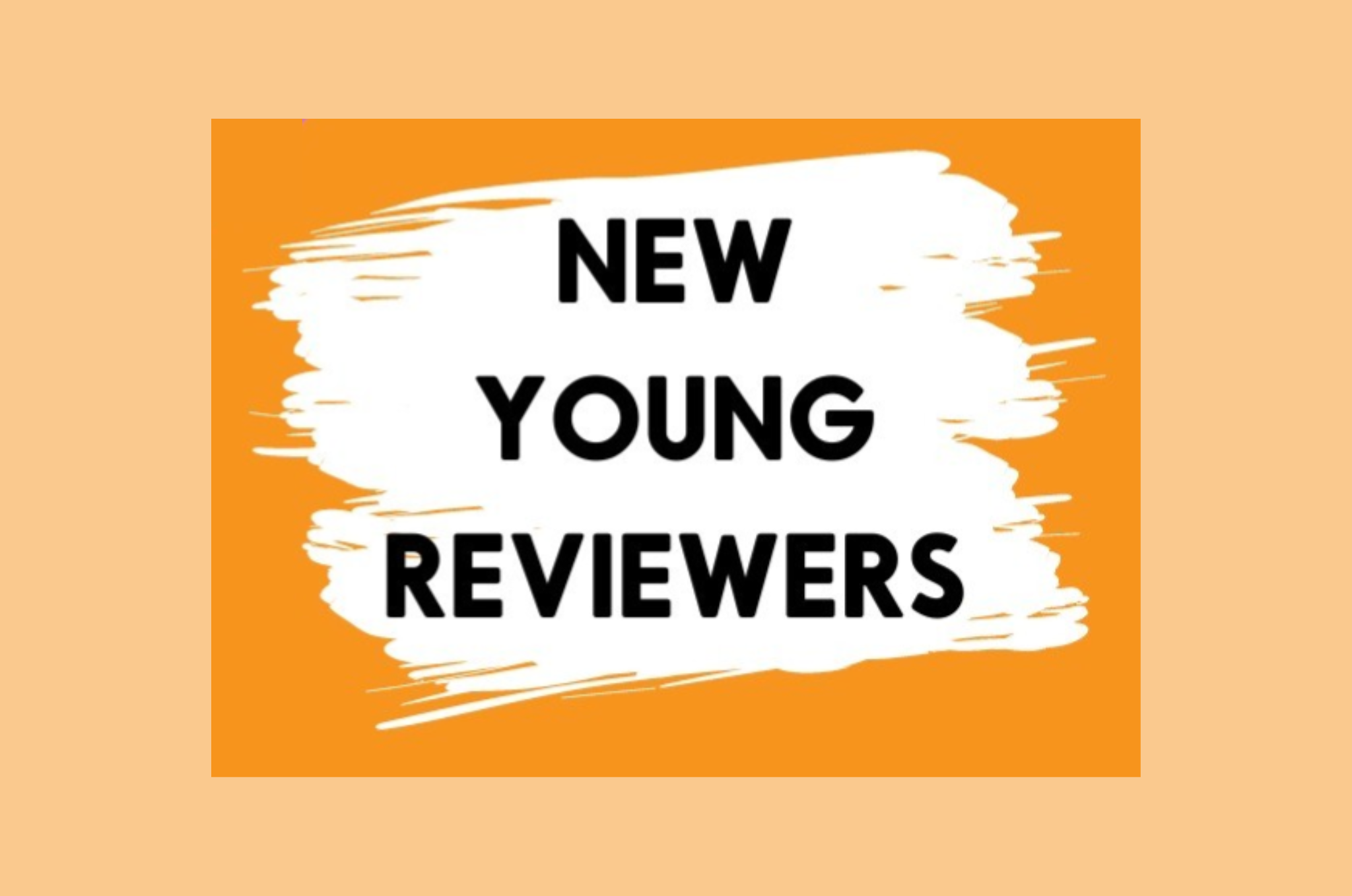








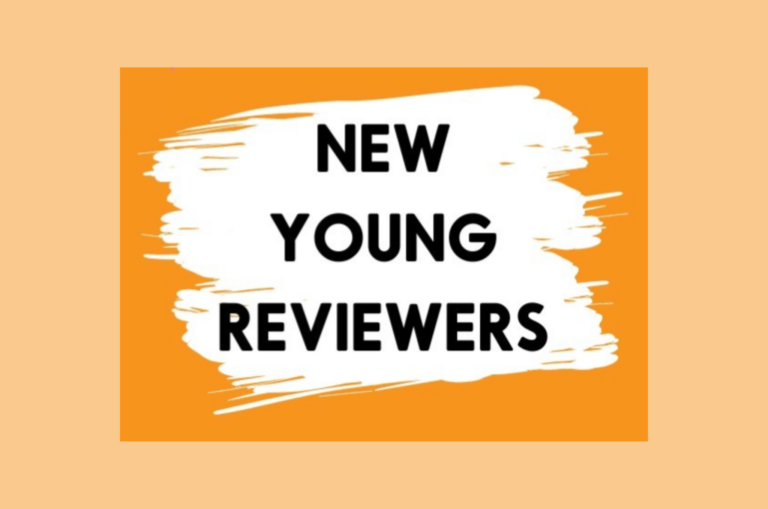
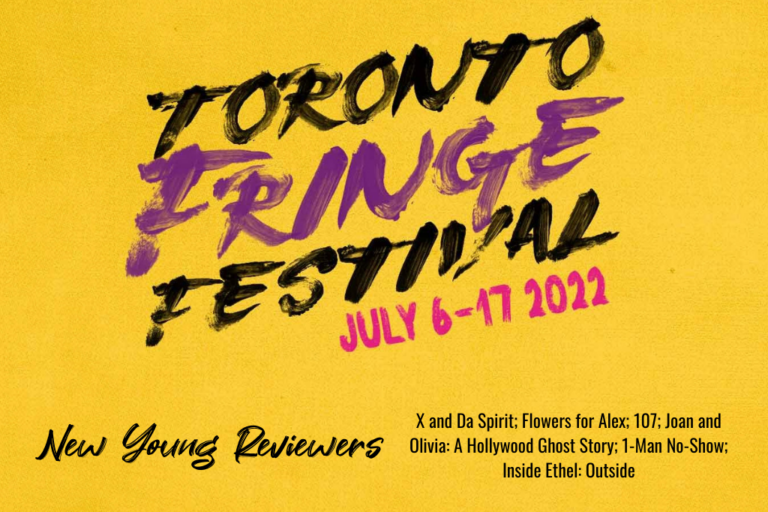
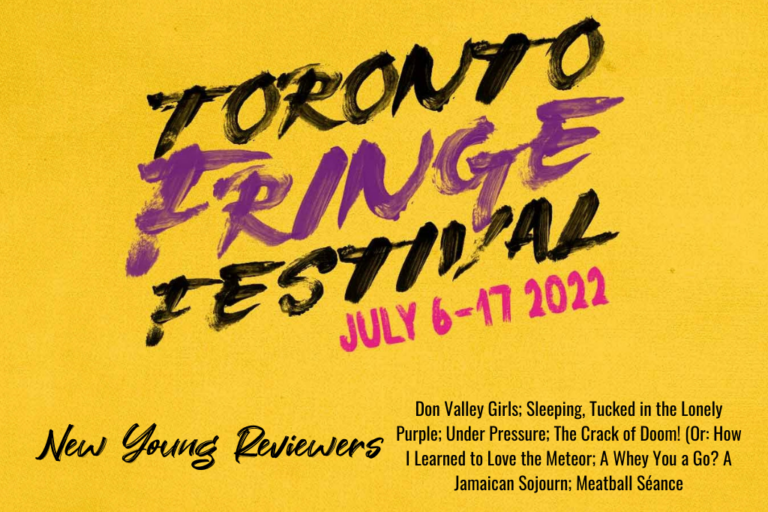
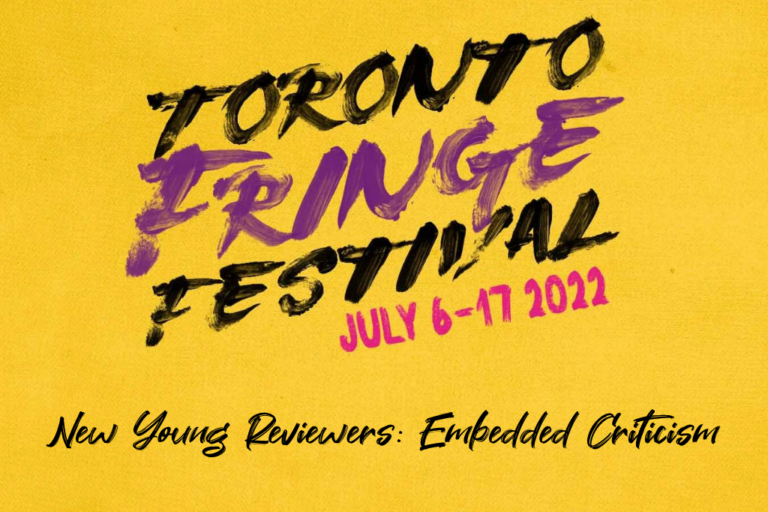
Comments